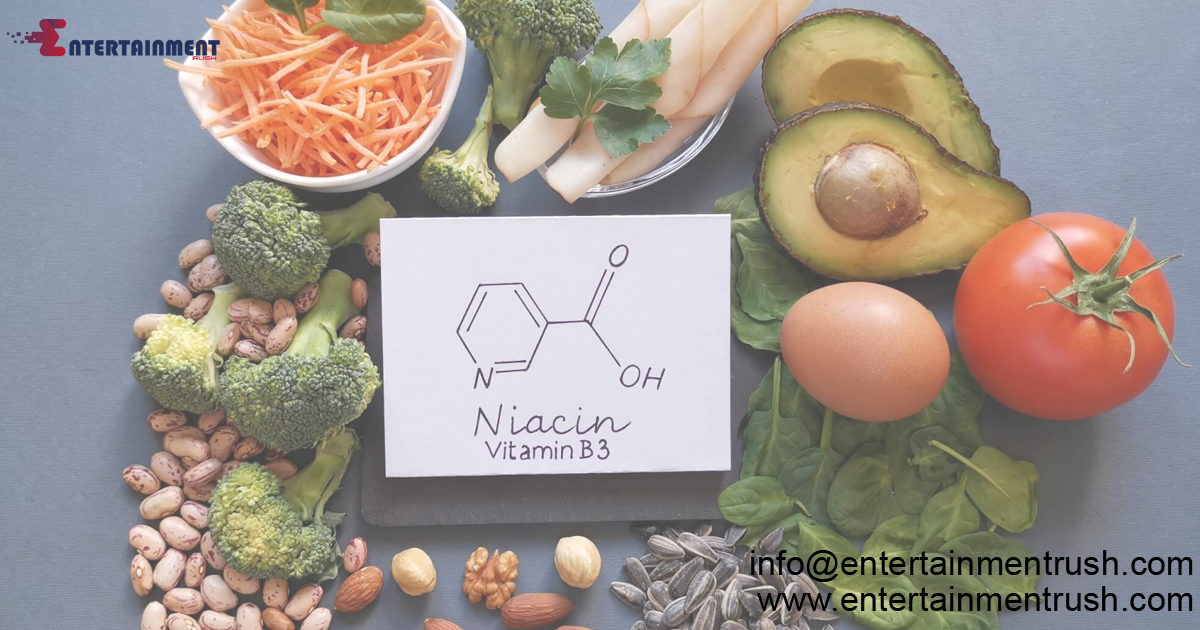Cardiovascular disease (CVD) encompasses a range of conditions affecting the heart and blood vessels, standing as a leading cause of mortality for both men and women across the United States. Despite notable strides in prevention and treatment, the prevalence of CVD persists, suggesting the existence of yet unidentified risk factors.
1-Unveiling Hidden Risks: A Study on CVD Susceptibility
To delve into these potential factors, a dedicated research team, led by Dr. Stanley Hazen of the Cleveland Clinic and supported by the National Institutes of Health (NIH), embarked on a quest to explore the world of metabolic byproducts that might contribute to CVD susceptibility. Their enlightening findings, published in Nature Medicine on February 19, 2024, shed crucial light on this intriguing subject.
2-The Role of Niacin: A Closer Look
Niacin, also known as nicotinic acid or vitamin B3, plays a fundamental role in our diets. Various nations mandate the fortification of staple foods with niacin to ward off deficiencies. In the United States, niacin supplementation is obligatory for “enriched” foods, with recommended daily intakes for adults ranging from 14–18 mg. Interestingly, high doses of niacin, ranging from 1,500–2,000 mg/day, were pioneers in the realm of cholesterol-lowering medications. However, unlike newer drugs in this category, niacin did not exhibit significant reductions in the risk of heart attacks or strokes, a perplexing mystery that confounded researchers for years.
3-Investigating Metabolic Byproducts: 2PY and 4PY
Scrutinizing blood plasma samples from a cohort of over 1,100 individuals, the team pinpointed two molecules—2PY and 4PY—that emerged from the breakdown of excess niacin. These molecules surfaced as potential indicators of major adverse cardiac events, such as heart attacks and strokes.
4-Unraveling Associations: ACMSD Gene and VCAM-1 Protein
Expanding their investigation to encompass more than 3,000 individuals across American and European cohorts, the researchers unveiled a stark correlation. Elevated levels of 2PY or 4PY were closely linked with an increased risk of major cardiac events. Individuals with concentrations of these molecules in the top quartile faced 1.6-2 times greater risks of such events over the ensuing three years, even after adjusting for other known CVD risk factors.
5-Genetic Insights: ACMSD Gene Variants
Further exploration led to a fascinating discovery of an association between the levels of both 2PY and 4PY and genetic variations in the ACMSD gene. This gene, it seems, plays a pivotal role in modulating the levels of these molecules and their potential impact on cardiovascular health.
6-The Role of VCAM-1: A Key Player in Arterial Plaque Formation
Notably, another significant player emerged in this intricate web—VCAM-1, a protein linked with the attachment of white blood cells to blood vessel walls during inflammatory responses. The levels of VCAM-1 showed a remarkable correlation with the levels of 2PY and 4PY, further solidifying the potential link between excess niacin and CVD risk.
7-Insights from Animal Studies: Implications for Human Health
Intriguingly, experiments involving the administration of 4PY to mice revealed a notable increase in VCAM-1 levels on vessel walls, along with heightened adherence of white blood cells. These findings suggest a potential mechanism through which excess niacin, when broken down into 4PY, triggers inflammatory pathways that promote arterial plaque formation, thereby potentially elevating the risk of major cardiac events.
8-Niacin’s Paradox: Balancing Benefits and Risks
Dr. Hazen remarked on the paradox of niacin’s effects, highlighting the disparity between its cholesterol-lowering properties and its clinical benefits. The study offers a compelling explanation for this paradox, suggesting that unclear adverse effects of excess niacin might counteract its LDL-lowering benefits.
9-Looking Ahead: Implications for CVD Risk Assessment
The implications of this groundbreaking study extend far and wide, offering a new lens through which to view CVD risk assessment. It underscores the pressing need for further research into the intricate interplay between excess niacin, metabolic byproducts, genetic factors, and cardiovascular health.
Conclusion: A Step Towards Clarity in CVD Prevention
In conclusion, this study serves as a beacon of clarity in the realm of cardiovascular health. By unraveling the potential risks associated with excess niacin and its metabolic byproducts, it paves the way for more targeted approaches to CVD prevention and treatment. As we delve deeper into the complexities of cardiovascular disease, studies like these offer hope for a healthier, heart-strong future.




Leave feedback about this